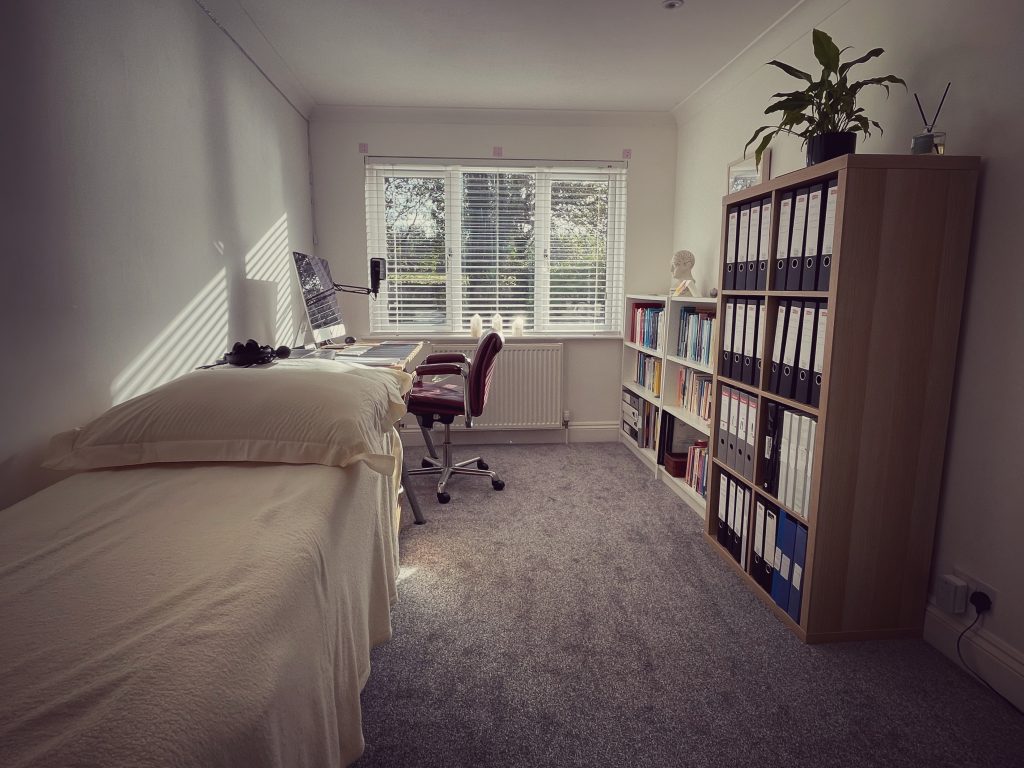Navigating the Festive Season with Calm and Clarity: Tackling Christmas Anxiety with Solution-Focused Hypnotherapy
The festive season, often associated with joy, warmth, and togetherness, can paradoxically be a source of heightened stress and anxiety for many individuals. The pressure to fulfil expectations, the relentless pace of holiday activities, and the potential for family conflicts can weigh heavily on mental well-being. While it’s natural to feel some level of tension during this time, persistent anxiety can derail the festive spirit and hinder the ability to fully embrace the holiday season.
Harnessing Solution-Focused Hypnotherapy for a Calmer Christmas
Solution-Focused Hypnotherapy (SFH) emerges as a beacon of hope for those seeking to alleviate Christmas anxiety and regain control of their holiday experience. SFH is a unique approach that delves into the underlying roots of anxiety, empowering individuals to transform their perspective and cultivate a more positive mindset.

Addressing Underlying Anxieties
SFH practitioners work collaboratively with clients to identify the specific triggers that fuel their anxiety, whether it’s financial concerns, social pressures, or past holiday experiences that have left a negative imprint. By understanding the root causes of anxiety, individuals can develop targeted coping mechanisms to effectively manage their stress levels.
Shifting Perspectives through Guided Imagery
SFH employs guided imagery, a powerful tool that utilises relaxation techniques and visualisation exercises to transport clients into a state of calm and serenity. Through this guided process, individuals can envision themselves navigating the holiday season with ease, encountering positive interactions and overcoming any obstacles that may arise.
Cultivating Resilience and Positivity
SFH goes beyond symptom management and aims to foster a sense of inner strength and resilience. Therapists encourage clients to adopt empowering self-talk, reinforcing positive affirmations and shifting their focus towards the enjoyable aspects of the holiday season. This positive reinforcement helps individuals cultivate a more hopeful and joyful outlook.
Integrating Self-Care Practices for a Balanced Holiday
SFH is not just about mental conditioning; it also emphasises the importance of self-care practices to holistically support mental well-being during the festive season. SFH encourages individuals to prioritise adequate sleep, engage in regular physical activity, maintain a healthy diet, and limit alcohol consumption, all of which contribute to emotional regulation and stress reduction.
Beyond SFH: Additional Strategies for a Joyful Holiday
While SFH plays a pivotal role in alleviating Christmas anxiety, it’s essential to complement its approach with additional self-care practices tailored to personal needs. These practices can significantly enhance overall well-being during the holiday season:
- Prioritising Sleep: Aim for 7-8 hours of quality sleep each night to promote mood regulation and reduce stress hormones.
- Engaging in Exercise: Regular physical activity releases endorphins, natural mood boosters that combat anxiety and elevate spirits.
- Maintaining a Healthy Diet: A balanced diet provides essential nutrients for optimal mental health and energy levels.
- Limiting Alcohol Consumption: Excessive alcohol can exacerbate anxiety and hinder stress management.
- Practising Mindfulness: Mindfulness techniques like meditation and deep breathing promote relaxation and reduce emotional reactivity.
- Seeking Social Support: Connecting with supportive friends and family fosters a sense of belonging and alleviates feelings of isolation.
Seeking Professional Guidance when Needed
If Christmas anxiety persists despite self-care efforts and SFH interventions, seeking professional guidance from a mental health expert is crucial. A therapist can provide personalised assessment, recommend additional treatment options, such as cognitive-behavioural therapy (CBT), and facilitate a comprehensive approach to managing anxiety.
Conclusion: Embracing the Holiday Season with Confidence
Christmas anxiety, while a common experience, can be effectively managed through a combination of Solution-Focused Hypnotherapy, self-care practices, and professional support. By adopting these strategies, individuals can navigate the festive season with greater resilience, positivity, and a renewed sense of joy and well-being. Remember, you are not alone in your experience, and there are effective tools available to help you create a more harmonious and enjoyable holiday season.











